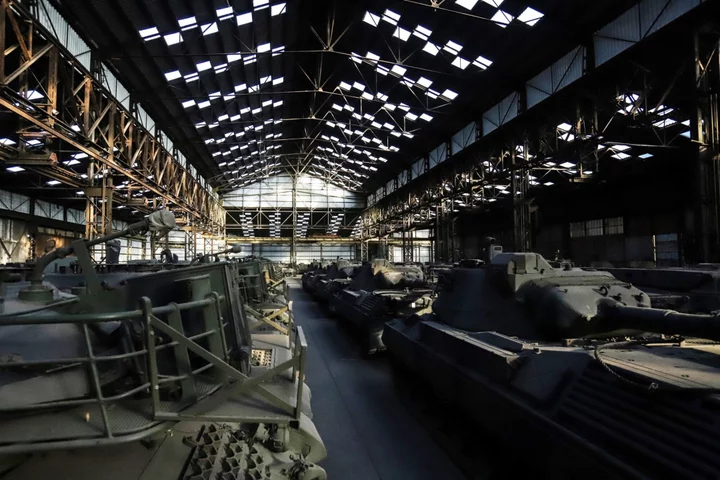
Lindner Says Further Ukraine Aid Must Be Outside EU Budget
German Finance Minister Christian Lindner said further financing of support for Ukraine should be separate from the European
2023-07-14 15:50
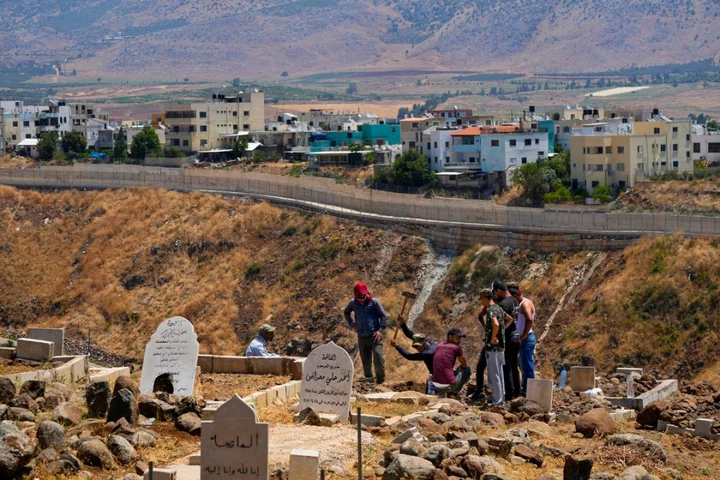
Moves at a small border village hike Israel-Hezbollah tensions at a time of regional jitters
The little village of Ghajar has been a sore point between Israel and Lebanon for years, split in two by the border between Lebanon and the Israeli-occupied Golan Heights. But after a long period of calm, the dispute has begun to heat up again. Israel has been building a wall around the half of the village in Lebanese territory, triggering condemnation from the Lebanese militiant force Hezbollah, accusing Israel of moving to annex the site. A recent exchange of fire in the area raised alarm that the dispute could trigger violence. The growing tensions over Ghajar add to the jitters along the Lebanese-Israeli border, where Israel and Iranian-backed Hezbollah fought a destructive 34-day war in the summer of 2006. The two sides have studiously avoided outright battle ever since, despite frequent flare-ups of tension -- but each constantly says a new conflict could erupt at any time. The dispute over a small village in the green hills where Lebanon, Israel and Syria meet brings a new point of worry amid broader unrest. The West Bank has seen increased bloodshed the past week, with a major two-day offensive that Israel says targeted Palestinian militants. Within Israel, moves by the hard-right government to overhaul the judicial system have sparked large anti-government protests. “This is Lebanese land, not Israeli,” said Lebanese shepherd Ali Yassin Diab, pointing to the half of Ghajar being enclosed by the Israeli wall as he grazed his sheep and goats nearby. Members of the U.N. peacekeeping force UNIFIL watched from a distance. Yassin used to take his herds to drink at a pond there. He now has to buy water for his sheep. The village’s division is an unusual byproduct of the decades of conflict between Israel and its neighbors. Ghajar was once part of Syria but was captured by Israel in the 1967 Mideast war as part of Syria’s Golan Heights, which Israel occupied and later annexed, with little world recognition. In the 1980s and 1990s, Ghajar’s population expanded north into nearby Lebanese territory, held by Israel in its 18-year occupation of southern Lebanon. When Israel withdrew from Lebanon in May 2000, U.N. surveyors delineating temporary borders ruled that Ghajar’s northern part was in Lebanon, its southern part in the Golan, dividing it in two. Six years later, Israeli troops moved into the northern part of Ghajar during the Israel-Hezbollah war. They have occupied it since, preventing people from entering it from Lebanon. Under the truce that ended the 2006 fighting, Israel agreed to withdraw from Ghajar, but it wanted to clinch an arrangement to keep Hezbollah from entering the village. Most of Ghajar’s around 3,000 residents hold Israeli nationality — some of them alongside Lebanese — and they largely identify as Syrians. Last year, Israel started erecting a concrete wall around the northern part of the village. It also began encouraging Israeli tourism to the village. In apparent reply to the near finishing of the wall, Hezbollah set up two tents nearby, including one in the area of Chebaa Farms, which both Israel and Lebanon claim as its territory. It is not clear what is inside the tents. Israel filed a complaint with the United Nations, claiming the tents were several dozen meters (yards) inside of Israeli territory. Hezbollah says the tents are in Lebanese territory. Israeli Foreign Ministry spokesman Lior Haiat told the AP that Israel has turned to UNIFIL and “other countries” to resolve the situation but did not identify the countries and did not immediately comment on the wall in Ghajar. On Monday, UNIFIL’s commander relayed an Israeli request to Lebanon’s caretaker prime minister and parliament speaker to remove the tent. They responded that Israel should withdraw its troops from the Lebanese part of Ghajar, according to Lebanese Foreign Minister Abdallah Bouhabib. Hezbollah leader Sayyed Hassan Nasrallah said in a speech Wednesday night that Israel cordoned off Ghajar before Hezbollah set up its tents. “Over the past days, it became clear that they (Israel) have annexed it,” Nasrallah said. He added: “The land of Ghajar will not be left for Israel, and certainly not Chebaa Farms and Kfar Chouba,” another border area claimed by both countries. A female resident of Ghajar, speaking to the AP on condition of anonymity due to security concerns, said the villagers consider themselves Syrian but their main concern “is to stay in Ghajar, in this village, living in peace and security. No matter under who rules.” “There is a (border) line that was drawn by the United Nations. Why are they allowed to cross it while we as Lebanese citizens cannot?” Mohammed Rammal, the mayor of the nearby Lebanese border village of Oddeissi, said of Israel’s presence in Ghajar. Last week, an anti-tank missile was fired from Lebanon near Ghajar, with some fragments landing in Lebanon and others inside Israeli territory. Israel fired shells on the outskirts of the nearby village of Kfar Chouba. On Wednesday, an explosion elsewhere near the border slightly wounded at least three Hezbollah members. Nasrallah said the case is still under investigation. Late last month, Hezbollah said it shot down an Israel drone flying over a village in southern Lebanon. On Monday, Prime Minister Benjamin Netanyahu met with President Joe Biden’s special envoy for energy, Amos Hochstein, during which they discussed “regional issues,” according to the Israeli prime minister’s office. Some Israeli media said Netanyahu and Hochstein, who helped last year broker a maritime border deal between Israel and Lebanon, discussed tensions along the border with Lebanon. “We continue to monitor and engage with authorities in Lebanon and Israel on the issue of Ghajar,” UNIFIL spokeswoman Kandice Ardiel said. She added that UNFIL has repeatedly called on Israel to stop its works north of the line and that Israel’s occupation of northern Ghajar violates the U.N. Security council resolution that ended the 2006 war. Israel considers Hezbollah its most serious immediate threat, estimating it has some 150,000 rockets and missiles aimed at Israel. During a tour by an Associated Press team near Ghajar this week, more patrols by U.N. peacekeepers and Lebanese army along the border were visible. Residents in nearby villages appeared defiant and going on with life as usual during the summer season, when many expatriates come to spend time with their families. In Lebanese media, many analysts say neither side wants a new war. But Lebanese political analyst Faisal Abdul-Sater warned that the situation is very dangerous as Israel and Hezbollah are on alert. “Whoever fires the first shot will bear the responsibility for the consequences,” he said. ___ AP correspondent Josef Federman contributed to this report. Read More Ukraine war’s heaviest fight rages in east - follow live Charity boss speaks out over ‘traumatic’ encounter with royal aide AP Week in Pictures: Europe and Africa Stock market today: Asian shares buoyed by Wall Street's winning week as inflation eases For a group of Ukrainian women, painting is a form of therapy to help them cope with loss
2023-07-14 14:57
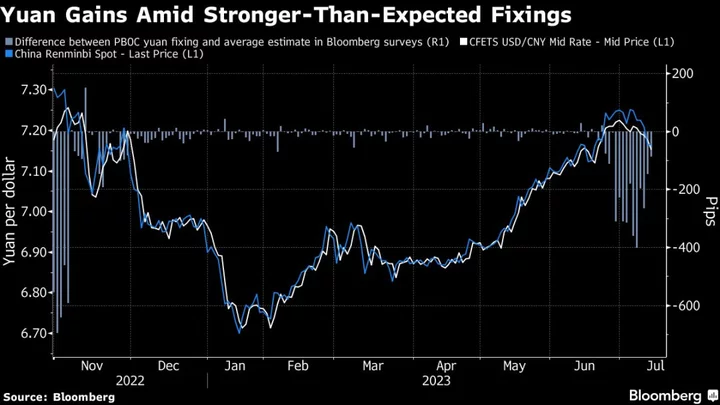
Yuan Set to Advance for Second Straight Week After Latest Bout of Weakness
The yuan is rebounding from its latest bout of weakness, as China moves to protect economic growth and
2023-07-14 14:47
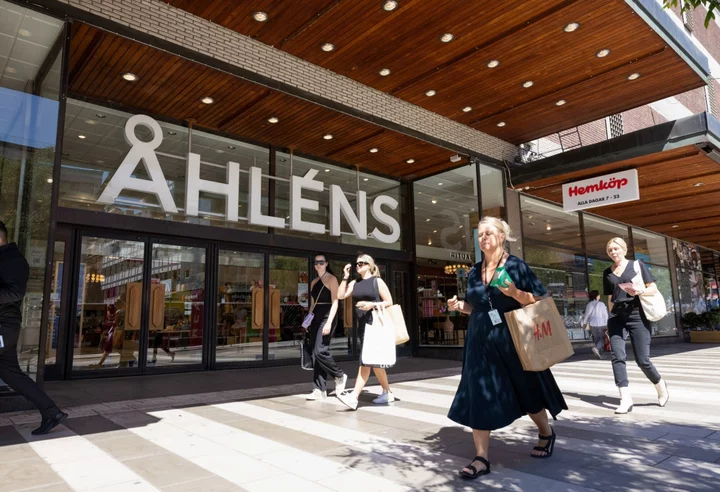
Swedish Prices Rise More Than Expected in Setback for Riksbank
Swedish core inflation slowed less than expected in June, adding pressure on the country’s central bank to tighten
2023-07-14 14:28
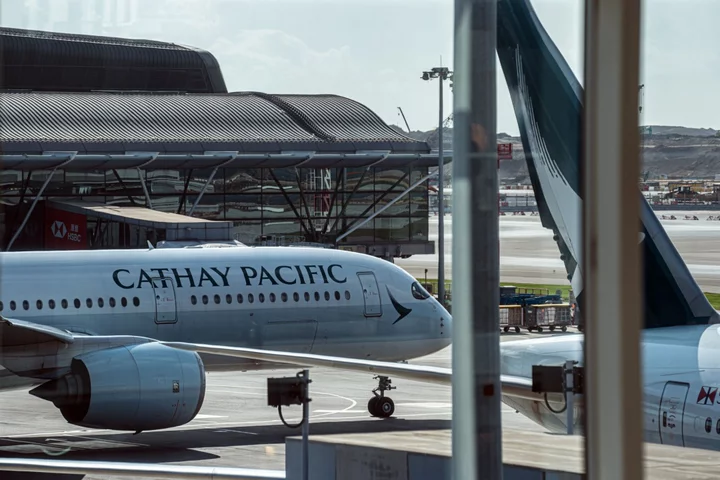
Cathay Pacific Forecasts Bumper Profit With Bonuses for Staff
Cathay Pacific Airways Ltd. said it will provide bonuses of up to six weeks pay to employees after
2023-07-14 13:58

'Alarming and unprecedented' Irish bird flu warning
Hundreds of seabirds with suspected avian flu have been found dead in recent weeks.
2023-07-14 13:51
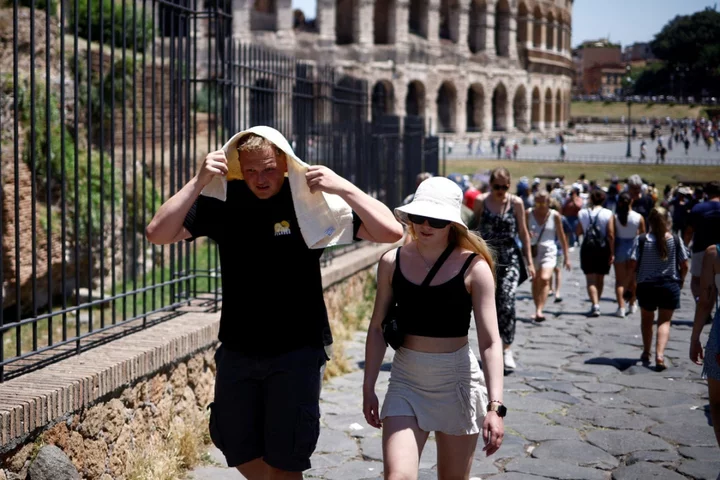
Europe heatwave 2023 – live: Greece in emergency weather measures as map shows deadly ‘Cerberus’ heat
Greece has introduced emergency measures to help workers cope with temperatures of more than 40C as the Cerberus heatwave grips Europe. The country has introduced the mandatory stoppage of work where there is heat stress from 12-5pm and high risk members of the public service will work from home. Temperatures in Greece could top 44C in the days to come while already in Spain the ground temperature has reached 60C. A heat map for Europe has turned to dark red and even black in areas because of the severity of the extreme weather, with forecasters noting that the heatwave could last for up to two weeks. One person has already died as a result. The 44-year-old worker was reportedly painting a zebra crossing in 40C heat in the town of Lodi outside Milan, Italy, at midday on Tuesday when he collapsed. The scorching heat is being driven by the rising global temperature as well as El Nino – a cyclic climate pattern which makes many places a lot hotter. There is also extreme heat in the US, and you can follow the blog for that here. Read More Land temperatures in Spain surpass 60C as deadly heatwave sweeps Europe UK weather: Met Office issues two yellow warnings as Britons brace for ‘unusual’ winds Europe heatwave: Is it safe to travel to Italy, Spain, Greece and Croatia?
2023-07-14 13:19
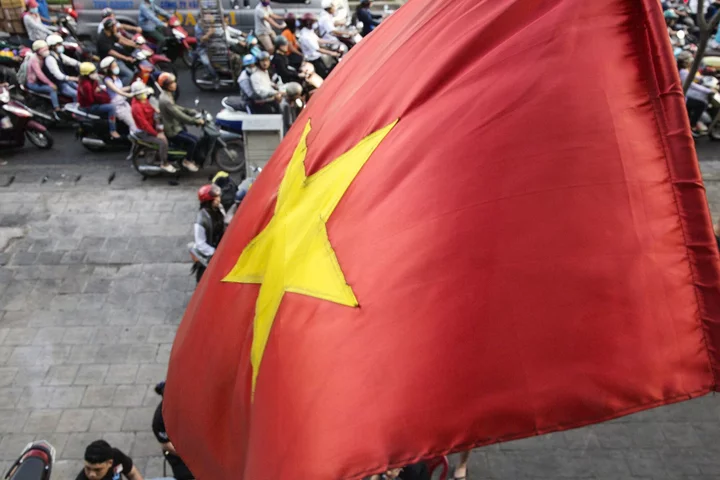
Vietnam’s Zing News Halts Operation After State Inspection
Vietnam’s news website Zing News said it has suspended publication for three months from July 14 following a
2023-07-14 12:45
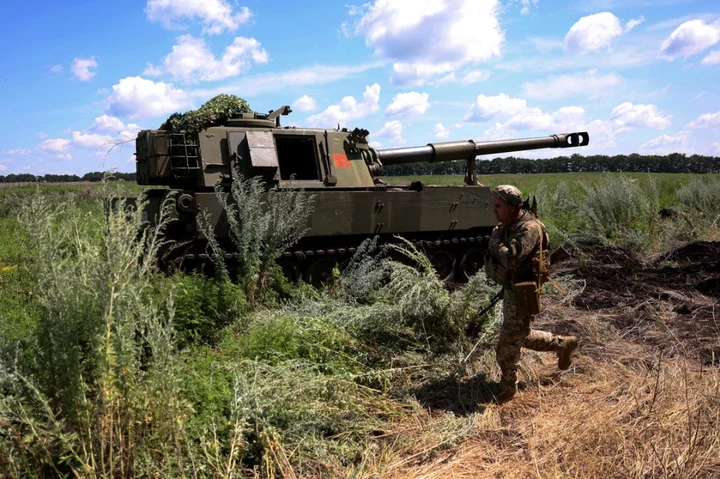
Russia-Ukraine war – live: Putin’s military in state of ‘confusion’ in wake of Wagner mutiny, US general says
Russia’s leadership is suffering “friction and confusion” since the Wagner mercenary group’s mutiny last month, but the impact it is having on front lines in Ukraine is still uncertain, the United States’ top general said on Thursday. General Mark Milley descibed “a lot of drama” at senior levels within the regime after Yevgeny Prigozhin led the mercenary group to capture Rostov-on-Don and then begin to drive to Moscow before the assault on the capital was defused in a deal ostensibly brokered by Belarusian leader Alexander Lukashenko. Mr Prigozhin has said the mutiny was not aimed at overthrowing the government but at “bringing to justice” the army and defense chiefs for their “blunders and unprofessional actions”. “At the strategic level it is pretty clear that you have a significant amount of friction and confusion,” General Milley told a small group of reporters traveling with him in Asia. Also on Thursday, a senior Russian general who was fighting in Ukraine said he was dismissed from his position after he accused the military’s leadership of betraying his troops with a lack of support. Read More Wagner boss Yevgeny Prigozhin ‘dead or in prison’ after Putin meeting, former US commander claims Russian general says he has been fired for telling truth about dire situation on Ukraine frontlines What to know about the harrowing Ukraine war doc '20 Days in Mariupol'
2023-07-14 12:20
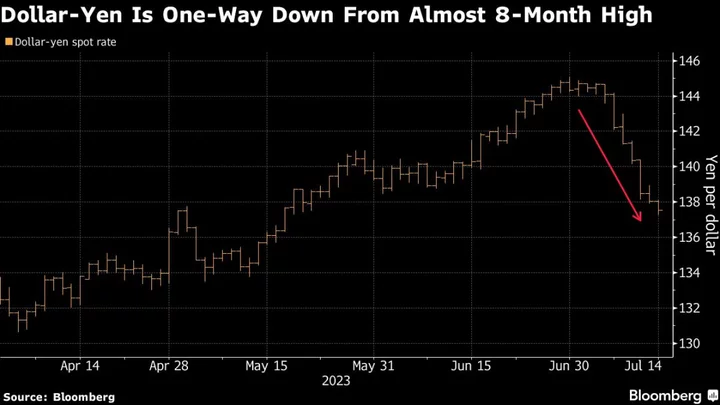
The Yen Is Headed for Its Longest Rally Since 2018
The yen was on course to notch its longest winning streak since 2018 amid signs of position adjustments
2023-07-14 11:58
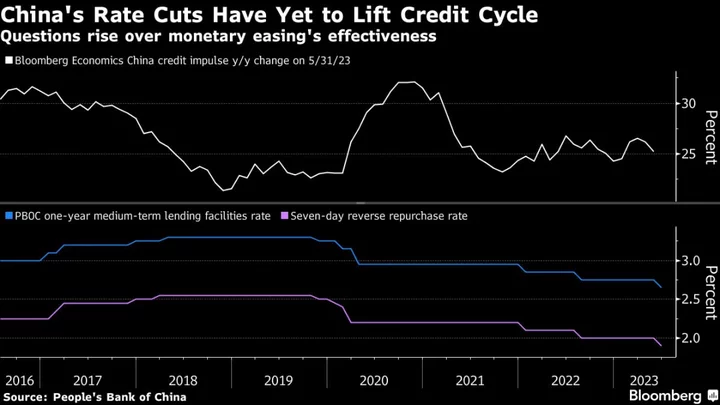
China Central Bank Pledges to Use Policy Tools to Spur Recovery
The People’s Bank of China urged patience and confidence in the economy’s recovery as it pledged to use
2023-07-14 11:19
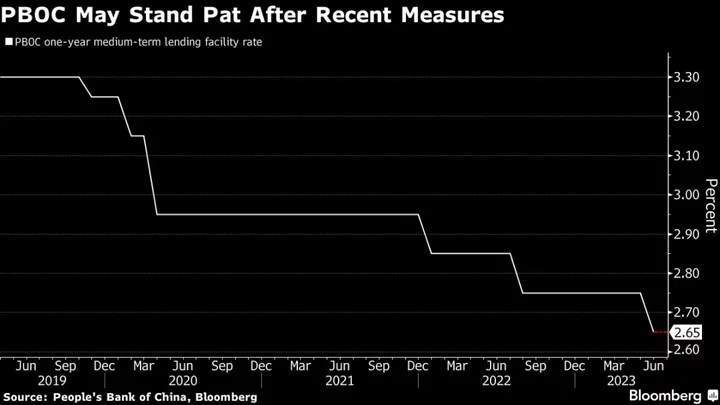
PBOC Seen Holding Key Borrowing Rate After Slew of Support Steps
China will likely keep a key borrowing rate unchanged next week as it assesses the impact of its
2023-07-14 09:57
